Filter by

Plant Extracts in Skin Care Products
Currently, in the cosmetic industry, there is an increasing interest in natural extracts, particularly plant extracts. The inclusion of antioxidants in topical formulations may contribute to minimize skin oxidative stress, which has been associated with aging. Many herbal agents used in cosmetics have been selected by a process of ‘trial and error’ and, thus, are used on the basis of experi…
- Edition
- -
- ISBN/ISSN
- 978-3-03897-161-0
- Collation
- -
- Series Title
- -
- Call Number
- 500 PLA
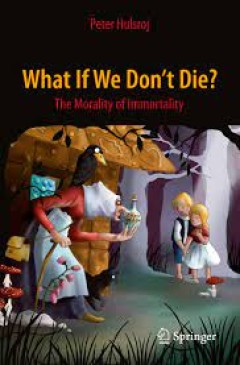
What If We Don't Die? The Morality of Immortality
This book deals with the very real possibility of earthly immortality and the human and societal implications of such immortality, including whether it is desirable. It looks at what makes immortality appear so attractive and at the possibility that we would be better served with longer lives and the freedom to terminate our lives at the time when life has given us all the joy, inspiration a…
- Edition
- -
- ISBN/ISSN
- 978-3-319-19093-8
- Collation
- VIII, 183
- Series Title
- -
- Call Number
- -

What Every Woman Should Know about Cervical Cancer Revised and Updated
This book (an updated and extended edition) is about mobilizing women and health care policy makers and providers to unite their efforts in a single strategy for fighting cervical cancer worldwide. The objective of this strategy would be to reverse cervical cancer prevalence and mortality rates among all 2.4 billion women at risk and to achieve this goal within 10-15 years of implementation. Ce…
- Edition
- -
- ISBN/ISSN
- 978-94-017-7560-1
- Collation
- XLI, 527
- Series Title
- -
- Call Number
- -

Structure, Chemical Analysis, Biosynthesis, Metabolism, Molecular Engineering…
Ever since the concept of phytoalexins was proposed by Müller and Borger in 1940, these compounds have attracted considerable attention due to the central role they play in the defense mechanisms of various plants. Besides displaying antifungal activity in numerous plant–pathogen interactions, phytoalexins have been implicated in human health and disease as antioxidant, anticancer and cardio…
- Edition
- -
- ISBN/ISSN
- 978-3-03842-756-8
- Collation
- -
- Series Title
- -
- Call Number
- 540 STR
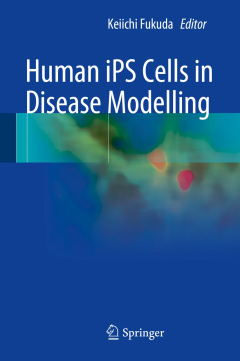
Human iPS Cells in Disease Modelling
Human iPS cells have a great potential to be cell sources for regenerative medicine because of the promise of infinite self-renewal and the capability to differentiate into multiple cell types. This book focuses on another great potential of human iPS cells, which is the establishment of human disease models using patient-specific iPS cells. Human iPS cells can be easily obtained from a patient…
- Edition
- -
- ISBN/ISSN
- 978-4-431-55964-1
- Collation
- VII, 99
- Series Title
- -
- Call Number
- 571.6 HUM
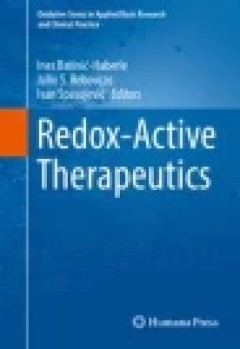
Redox-Active Therapeutics
This essential volume comprehensively discusses redox-active therapeutics, focusing particularly on their molecular design, mechanistic, pharmacological and medicinal aspects. The first section of the book describes the basic aspects of the chemistry and biology of redox-active drugs and includes a brief overview of the redox-based pathways involved in cancer and the medical aspects of redox-a…
- Edition
- -
- ISBN/ISSN
- 978-3-319-30705-3
- Collation
- -
- Series Title
- -
- Call Number
- 616.994
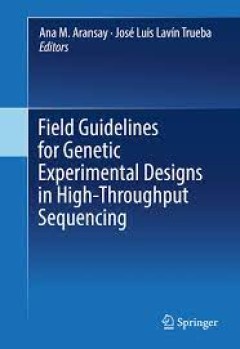
Field Guidelines for Genetic Experimental Designs in High-Throughput Sequencing
- Edition
- -
- ISBN/ISSN
- 978-3-319-31350-4
- Collation
- XI, 399
- Series Title
- -
- Call Number
- -
- Edition
- -
- ISBN/ISSN
- 978-3-319-31350-4
- Collation
- XI, 399
- Series Title
- -
- Call Number
- -
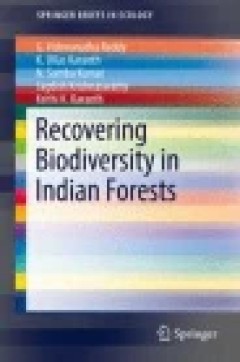
Recovering Biodiversity in Indian Forests
This book demonstrates how varying levels of human disturbance manifested through different management regimes influence composition, richness, diversity and abundance of key mammal, bird and plant species, even within ecologically similar habitats. Based on our results, we show the critical importance of the ‘wildlife preservation’ approach for effective biodiversity conservation. The stud…
- Edition
- -
- ISBN/ISSN
- 978-981-10-0911-2
- Collation
- -
- Series Title
- -
- Call Number
- 576.58
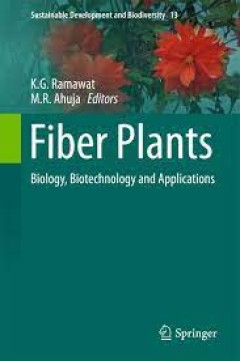
Fiber Plants Biology, Biotechnology and Applications
This book assesses the potential effects of biotechnological approaches, particularly genetic modification, on the present state of fiber crop cultivation and sustainable production. Leading international researchers discuss and explain how biotechnology can affect and solve problems in connection with fiber crops. The topics covered include biology, biotechnology, genomics and applications of …
- Edition
- -
- ISBN/ISSN
- 978-3-319-44570-0
- Collation
- XI, 258
- Series Title
- -
- Call Number
- -

Fetal Stem Cells in Regenerative Medicine Principles and Translational Strat…
This book explores the regenerative properties of fetal stem cells, from feto-maternal cell traffic through perinatal stem cells, with a discussion of key topics including stem cell banking, drug screening, in utero stem cell transplantation and ethical considerations. The expertly authored chapters also delve into embryonic, amniotic membrane, and umbilical cord blood stem cells; fetal develop…
- Edition
- -
- ISBN/ISSN
- 978-1-4939-3483-6
- Collation
- XIX, 453
- Series Title
- -
- Call Number
- -
 Computer Science, Information & General Works
Computer Science, Information & General Works  Philosophy & Psychology
Philosophy & Psychology  Religion
Religion  Social Sciences
Social Sciences  Language
Language  Pure Science
Pure Science  Applied Sciences
Applied Sciences  Art & Recreation
Art & Recreation  Literature
Literature  History & Geography
History & Geography